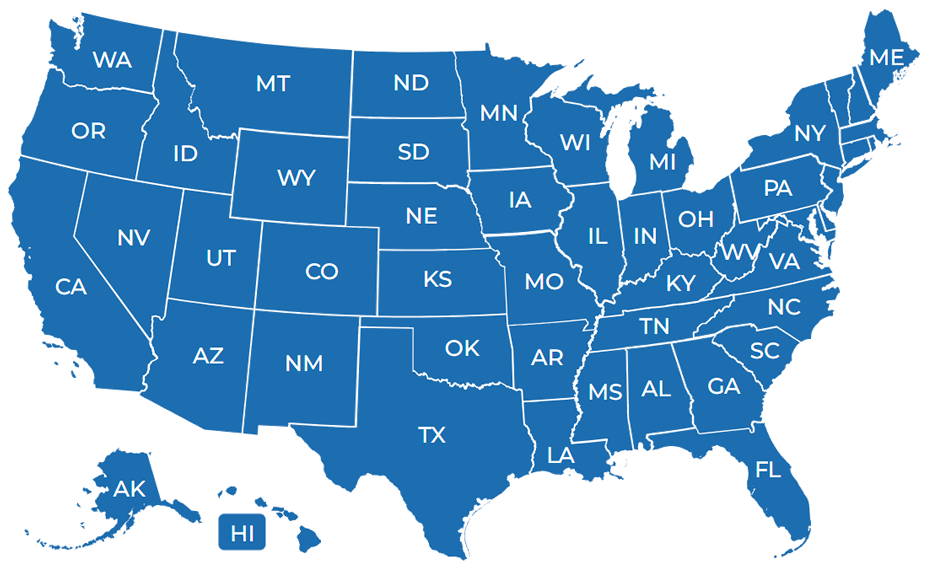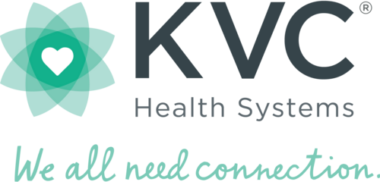The CAMS Framework is an empirically-validated approach to treating suicidal risk.
Backed by 40+ years of ongoing clinical research, the Collaborative Assessment and Management of Suicidality (CAMS) is a patient-centered, suicide-focused, clinical philosophy of care based on empathy, honesty, and trust. CAMS is a “Well Supported” treatment by CDC criteria, referenced by the Joint Commission, Zero Suicide, the Surgeon General and the 2024 National Strategy for Suicide Prevention.
In the CAMS Framework, the patient is the co-author of their own treatment plan developed collaboratively with the clinician. CAMS is proven to resolve suicidal ideation is as few as 6 sessions, decreasing hopelessness and increasing hope, leading to a life worth living with meaning and purpose.
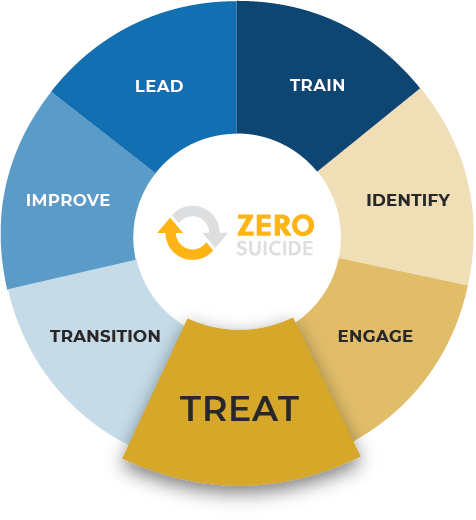
Part of the Zero Suicide Toolkit℠
CAMS-care Training & Designations
Reduce suicidal ideation in as few as 6-8 sessions with our integrative training model.
CAMS Trained™
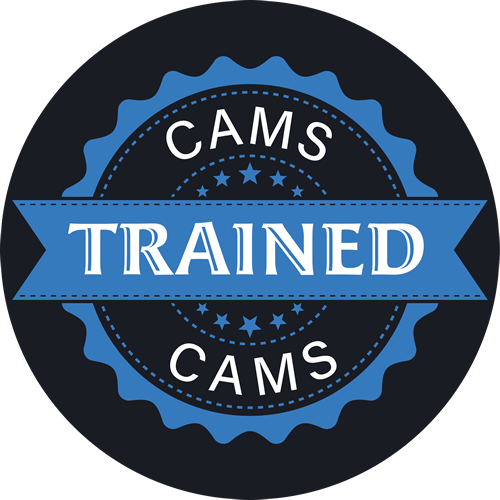
Learn the foundational skills and knowledge to prepare you to save lives, starting with your first patient.
10 hours of online training coursework and 4 hours of phone calls when working with patients.
CE credits available
Starting at: $414
Advanced CAMS Training

Apply the foundation of CAMS Trained across various settings, including CAMS-4Teens® & CAMS Brief Intervention.
7 hours of online coursework, including a video session and interactive training.
CE credits available
Starting at: $199
CAMS Certified™
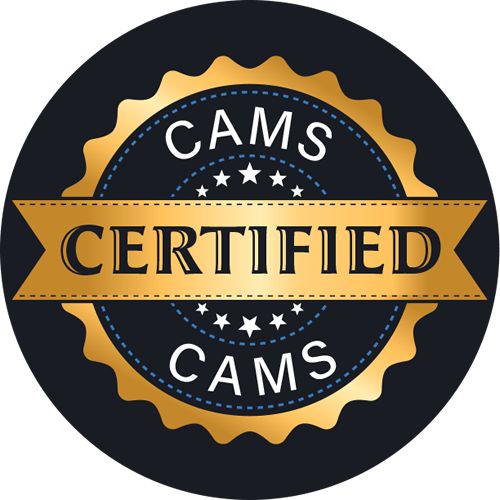
Demonstrate subject-matter expertise of the CAMS Framework. Become a CAMS approved clinic and provide consultation to other CAMS Trained clinicians.
2 additional competency reviews, including role-play sessions with a CAMS Consultant.
CE credits available
Starting at: $542
Which Training is Right For Me?
Your journey to effectively treating suicidal risk starts now. We’re in it with you — every step of the way.
Join our community of 40,000+ CAMS providers using CAMS to reduce suicidal ideation.
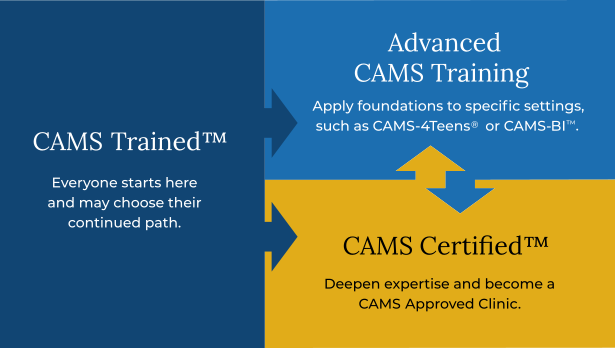
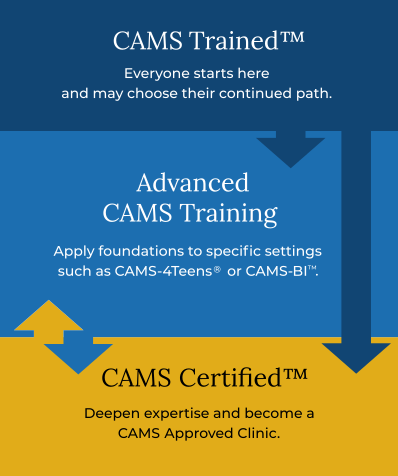
Benefits of the CAMS Framework
Empirically-Validated Treatment
Cost-Effective Care
Flexible Approach
Easy & Affordable Training
Reduced Malpractice Risk
Shared Understanding
CAMS is arguably one of the most widely used approaches to clinical care for suicidal patients. It can be readily integrated into any clinician’s therapeutic practice, regardless of background or training.
– Craig J. Bryan, PsyD, ABPP
Trott Gebhardt Philips Professor of Psychiatry and Behavioral Health, The Ohio State University
[CAMS-care] offers a practical, empathic, evidence-based approach that draws on decades of experience and refinements.
– Shireen L. Rizvi, PhD, ABPP
Graduate School of Applied and Professional Psychology, Rutgers, The State University of New Jersey
Learning CAMS has shaped who I am as a clinician. I am so much more comfortable working with individuals with suicidal ideation and behavior because of it.
– Emma Parrish
PhD Candidate
SDSU/UCSD Joint Doctoral Program in Clinical Psychology
Good documentation stops a lawyer in his tracks. CAMS and the Suicide Status Form has great documentation.
– Skip Simpson
The Law Offices of Skip Simpson, one of the country’s leading lawyers in the field of suicide malpractice litigation
CAMS-Trained Organizations
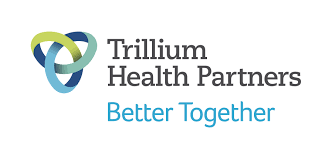
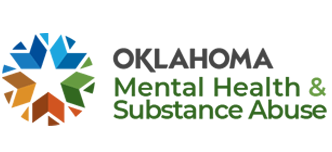
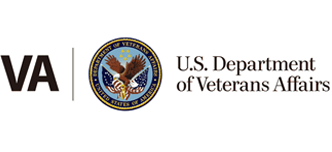
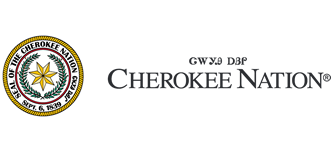
Clinician Locator
Find a CAMS Trained clinician who can help you, or your loved one, struggling with suicidal thoughts and feelings.
